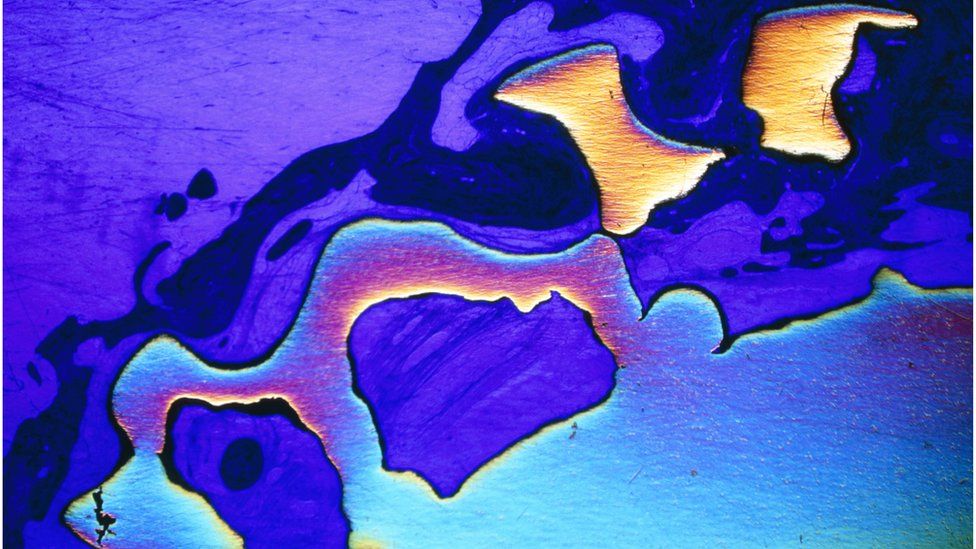New alloy 'four times harder than titanium'
- Published

A super-hard metal has been made in the laboratory by melting together titanium and gold.
The alloy is the hardest known metallic substance compatible with living tissues, say US physicists.
The material is four times harder than pure titanium and has applications in making longer-lasting medical implants, they say.
Conventional knee and hip implants have to be replaced after about 10 years due to wear and tear.
Details of the new metal - an alloy of gold and titanium - are revealed in the journal, Science Advances.
Prof Emilia Morosan, of Rice University, Houston, said her team had made the discovery while working on unconventional magnets made from titanium and gold.
The new materials needed to be made into powders to check their purity, but beta-Ti3Au, as it is known, was too hard to be ground in a diamond-coated mortar and pestle.
The material "showed the highest hardness of all Ti-Au [titanium-gold] alloys and compounds, but also compared to many other engineering alloys", said Prof Morosan.
She said the hardness of the substance, together with its higher biocompatibility, made it a "next generation compound for substantively extending the lifetime of dental implants and replacement joints".
It may also have applications in the drilling industry, the sporting goods industry and many other potential fields, she added.
The gold-titanium alloy is a cubic compound with a particular arrangement of atoms found when metals are combined at high temperatures.
Titanium is one of the few metals that human bone is able to grow around firmly, allowing it to be used widely in medicine and dentistry.
Correction 15 November 2016: This article has been amended following a complaint to the BBC's Editorial Complaints Unit.
Follow Helen Briggs (@hbriggs) on Twitter.